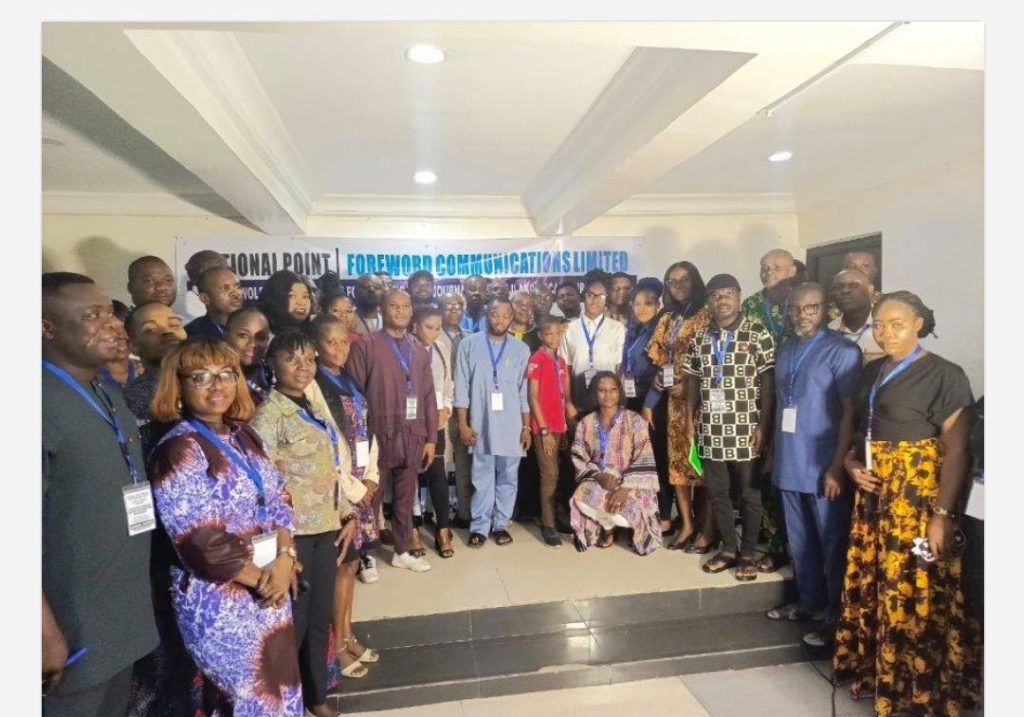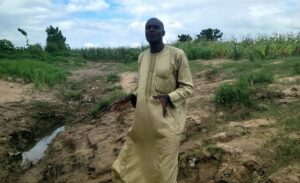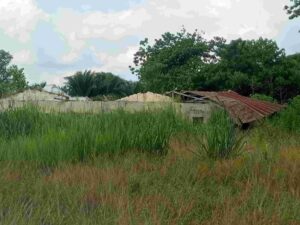Journalists have been tasked to promote good governance through investigative journalism. This was the emphasis of a one-day media training workshop on Investigative Journalism, Inclusive Development and Accountability organised by National Point Forward Communication Ltd in collaboration with the Wole Soyinka Centre For Investigative Journalism and MacArthur Foundation. The workshop was held at New Point Hotel, Uyo.
Giving a remark and preview of the July 19, 2024 training, the managing director of National Point/Forward Communication Ltd, Mrs. Ibiba Donpedro, highlighted the expectations from the training, project goals and gave an overview of the training. Donpedro, who welcomed participants to the workshop, said special focus was on the local media to reach the communities, cover the vulnerable, and monitor government to ensure that whatever they are supposed to do are done, pointing out that the aims and objectives of the training was to equip participants with knowledge on new media technologies and how journalists can remain relevant in a digital age.
One of the resource persons, Dr. Jude Okoro in his presentation, on “Investigative reporting tools to enhance exclusivity and accountable governance”, introduced participants to basic investigative digital tools that can enhance exclusive accountable governance reportage. Okoro said an investigative journalist must have such requisite writing skills as multi-tasking, clarity and conciseness, fact-checking, objectivity, persuasiveness, transparency and be able to cast engaging headlines and leads. Apart from promoting good governance, Okoro said investigative journalism also promotes human rights, improves public and citizenship engagement, exposes wrong doings, sheds light on government programmes and projects as well as provide platforms for whistle blowers and, however, encouraged journalists to do realistic appraisal of the effect of the story to know if it would break new grounds, among other ways of fostering investigative reporting.
Sunny Dada, while taking participants on “Data Journalism For Investigative Journalism” educated them on data assisted reporting for investigative, inclusive and accountable governance, and guided them on how to have hands-on experience in the use of relevant data analysis tools and real time data sources. According to him, there is an evolution in the way news stories are being reported and how issues are investigated, noting that the language of the present-day journalism is data and variables pieced together to make great news stories that change the face of the world.
Dada took the participants through data journalism, data analysis, steps to data journalism as well as listed websites and tools as Help A Reporter Out, Canva, Insorier, Excel, Datawrapper, Google map, flightradar24, Chart Builder, FOI, DataPortal.org, The World Counts, Google Earth and RiverData, which could aid a journalist in investigative reporting.
In her presentation on “Gender reporting and inclusivity”, Constance Meju, said gender roles vary according to cultures and pointed out that gender is not only about women and girls but involves men and boys and persons with disability, noting that journalists should be fair to women in their reportage by not reporting only negative things about them. She stressed the need to disaggregate marginalised and vulnerable groups to address gaps in gender programming, while explaining that gender inclusivity is men and women having equal opportunities. Meju listed areas that should be revisited to include follow up on female genital mutilation, how failure to implement programmes affect women negatively, implementation of widowhood rights, and stressed the need to bring men, women, persons with disabilities and other vulnerable persons to media focus. She called for more women gatekeepers in the media, localisation of gender policies to accelerate gender response policies.
On his part, Steve Obodoekwe took the participants on “Human Rights Reporting, Inclusivity and Accountability”, introducing them to basic human rights and accountability mechanisms, relevant local and international instruments that can aid journalistic programming. Speaking on “Communication tools for inclusive development and accountability, Emmanuel Obe, listed communication tools that are essential for investigative journalism to include Self, which involves personal decision to be a trained journalist; Kits such as camera, laptops, smart phones; Supportive tools such as funding; Access to Artificial Intelligence (AI); Freedom of Information law. Obe guided participants on how to programme communication tools in journalistic practice and encouraged journalists to track government implementation of projects, point out lapses and progress as well as remind governments to fulfil their promises, and most importantly, stay on the story for purposes of giving updates.
The workshop, which drew participants from Akwa Ibom, Cross River, Rivers and Edo States, featured pre-test and post-test administered by Mr. Sunny Dada to test participants’ knowledge level before and after the training.



